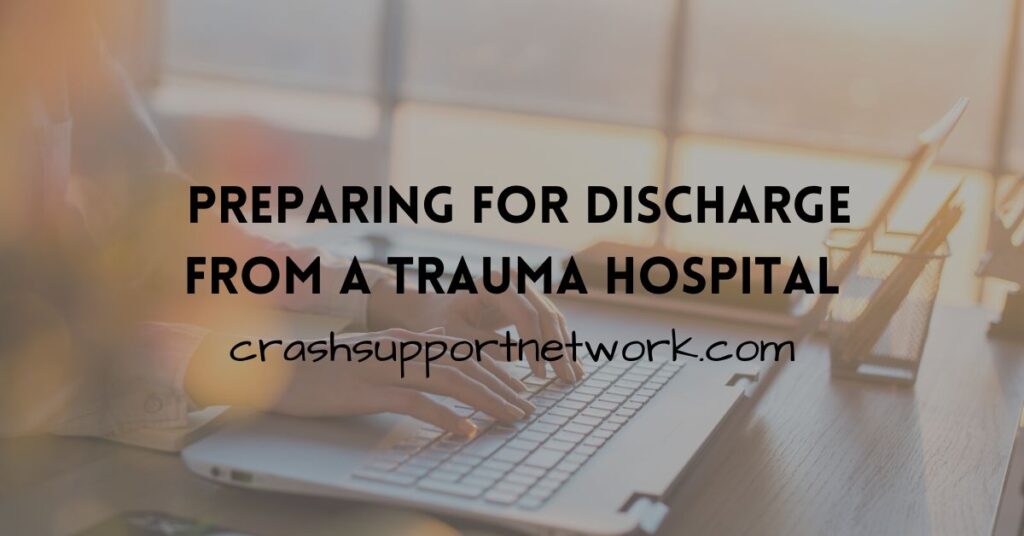
You may have mixed emotions when you are told that you are being discharged from a trauma hospital. You may feel ill-prepared and anxious to start the next phase of your rehabilitation and recovery. You will be unsure about your future and it’s important that you are involved in the decision-making process about your discharge. Hospitals should develop a plan with you for your discharge, recovery and rehabilitation, and ongoing care. This is a good time to ask questions and raise any concerns you or your family, caregiver or friends may have.
When speaking with hospital staff about your discharge:
- Find out the date and time of discharge.
- Make sure you understand everything you have to do before leaving hospital – this might include going over your hospital discharge plan, arranging any aids or equipment you need for your recovery, or filling a prescription.
- If you are going home, ask about anything you may need to help you recover there, such as walking aids or home help.
- Ask questions to ensure you have all the information you need.
- Ask what activities you can and cannot do once you get home, such as lifting, driving, and climbing stairs.
- Understand what the warning signs are that would mean you have to call a healthcare professional or return to hospital.
- Check if there are any follow-up appointments you need to make with a healthcare professional or at an outpatient clinic. Record any appointment dates in your phone or calendar, along with any special instructions for these appointments. You will need a rehabilitation team in place.
You must also:
- Make arrangements for someone to pick you up. Is your home going to be accessible?
- Make sure you have your house keys.
- It’s important to remember to wear lose clothing and to take all of your belongings with you from your hospital room.
- If you have retained a personal injury lawyer, make sure you inform them that you are being discharged.
You may feel like you are not ready to go home when the healthcare professional tells you it is time. Perhaps you do not feel strong enough – mentally or physically. It’s important to speak to your healthcare professional or the hospital social worker about your concerns. There are many options for support at home and programs to help you transition from hospital to home.
If Recovery at Home Does Not Go as Planned
If you are feeling unwell once you get home or your recovery is not progressing as expected, arrange to see your specialist earlier than previously arranged or talk to your family doctor. It’s important that you continue your care after you leave the hospital by taking any prescribed medications, arranging for services or equipment needed, and following up with your physician as recommended.
S. Dawne McKay is a survivor of a horrific crash that changed her life forever. Dawne shares her personal journey as a Crash Survivor Blogger and also collaborates with crash survivors as Guest Bloggers allowing them an opportunity to share their stories. Dawne is also the author of the book, “Talk Crash to Me – What to Expect After Surviving a Collision and How to Manage Your Recovery” which is available for purchase on Amazon.



